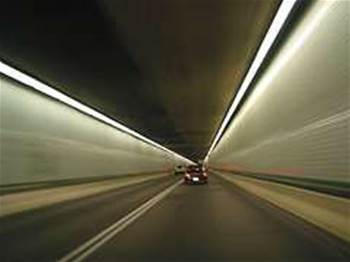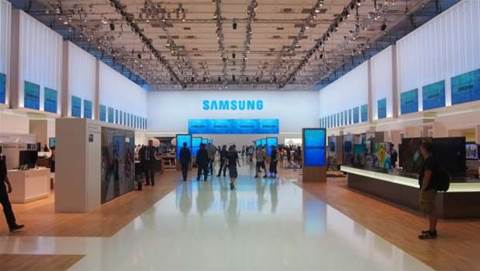The Queensland Department of Transport and Main Roads is looking to consolidate and modernise its IT systems some three years after forming from the amalgamation of two departments.
The department has sought to consolidate the SAP instances of the former Queensland Transport and the Department of Main Roads since 2009.
Chief information officer Chris Fechner said it had now reached the "final throes" of that program to create a single SAP instance for finance, costing, payroll and statutory reporting.
The consolidated instance is run by Queensland Shared Services, formerly known as CorpTech, and based on the decade-old SAP R/3 Release 4.6C.
Fechner said the department was working with Queensland Shared Services on a "technical upgrade" of its SAP instance from release 4.6C to ECC6 enhancement pack 5 or 6, with the upgrade scheduled to occur "sometime" this year.
In the "next few years", Fechner said the department would look to establish a second instance of SAP for asset management, replacing a bespoke environment for managing transport and road assets.
"Transport and Main Roads has a desire to be quite a big SAP user but we only use it for fairly limited functions at the moment, largely because of its technical condition," Fechner said.
"Our board of management has approved a strategy to use SAP as the basis of our process orchestration across the organisation.
"Where it functionally fits within SAP, our strategy is to use SAP for those functions."
Fechner said the department's current thinking for asset management was to create a separate ECC6 instance, using SAP linear asset management to "harmonise" the financial and physical views of its transport and road assets.
It had yet to decide where that new instance of SAP would be hosted.
But Fechner said the department hoped "to have a higher degree of control" over the newer instance of SAP, compared to the existing financial instance run by Queensland Shared Services.
"We're looking to have some degree of control... [of] the configuration component," he said.
"We're just working with Queensland Shared Services on how we do that because obviously one of the issues with [linear assets] is that it requires specialist functional knowledge, and it's not something that really fits within a shared services model, because not everybody would use these particular modules."
Fechner hoped that technical design work on the new SAP instance will run in parallel with the technical upgrade of the existing consolidated instance.
"We would like to, in parallel, commence our technical design around the new instance, but it really does come down a little bit to the agreement between Queensland Shared Services, [the state's whole-of-government ICT service provider] CITEC and ourselves as to how we host it," he said.
The SAP expansion is part of a multi-pronged IT strategy, spearheaded by Fechner and his information division of about 440 IT staff and 200 contractors.
Key elements of the department's strategic vision include:
- The business transformation initiative, to increase the department's use of SAP and aid decision-making.
- A collaboration and productivity overhaul that will end the use of Novell directory services and Lotus Notes.
- Retirement of Solaris and (eventually) IBM z Series mainframes, most likely in favour of virtualised Wintel servers.
SOE revamp
The Department of Transport and Main Roads will replace its standard operating environment (SOE) with a full Microsoft stack under a program called 'Collaboration and Productivity'.
The current SOE includes Windows XP, Office 2003, Lotus Notes for email and collaboration and uses a Novell directory structure.
"Our Productivity and Collaboration initiative is looking to get us pretty much on a homogenous Microsoft stack," Fechner said.
The new SOE would likely use Microsoft Active Directory, file and print, Windows 7, Office 2010, SharePoint for intra- and extranet (replacing SiteCore), OneNote and Lync unified communications.
The department also plans to migrate from its Lotus Notes mail environment to Exchange Server, though it plans to go directly to Exchange 2010 rather than the 2007 version being driven by the State Government's long-running whole-of-government Identity, Directory and Email Services program (IDES) program.
"Because we're [on] Lotus Notes, one of our transition strategies is that we would migrate from the Lotus Notes environment to an Exchange environment, before moving into the IDES environment," Fechner said.
"Our intent is to go to Exchange 2010, largely because of the benefits associated with archiving, and the integration with SharePoint and Office. If we move to the 2007 environment straight away we will actually reduce the benefits of our migration.
"[And] because [we're looking at] such a significant migration we are trying to not go to legacy products. What we're hoping is the IDES environment does make the move to 2010 prior to us migrating [to Exchange]."
Although the department is planning to move from XP to Windows 7, it has negotiated an option under its Software Assurance licensing agreement to move to Windows 8 when it becomes available.
Retiring Sun, IBM boxes
On the backend, the department is in the process of retiring its Sun Solaris environments where possible.
"That is one platform that we're seeking to remove," Fechner said.
"There's a few legacy applications that we still need to do some technical work on to move them to other environments."
In the longer term, the department also plans to move away from its IBM z10 EC mainframes that run its Transport Registration and Integrated Licensing System (TRAILS) and public key infrastructure for its new smartcard driver licensing system.
It has one z10 in each of the state government's primary data centres - the CITEC facility at 317 Edward Street in Brisbane, and Polaris.
"The intent with the license and registration is to decouple it so that we can migrate it off the mainframe over a period of time, because again that platform is probably one we'd prefer to retire," Fechner said.
Decision-making
The department has also set up an enterprise information management focus team to determine how it can improve decision-making.
"We've got literally dozens of disparate data sets that we're using for making decisions, the links between them are tenuous, and we're really trying to tidy those up," Fechner said.
"We store lots of video files now, [geospatial] information, [and] we have got a lot of instrumentation coming from the [transport] network.
"We're trying to link that up with other information so that we can predict things like where road congestion is and how we might be able to release it, [or] when particular items on the road network might be approaching failure points."
Fechner said the department had "settled" on IBM Cognos business intelligence software to "crunch a lot of the information".
Sign up to iTnews' Government edition to be the first to read part two of our exclusive interview with Queensland Department of Transport and Main Roads CIO Chris Fechner.


























